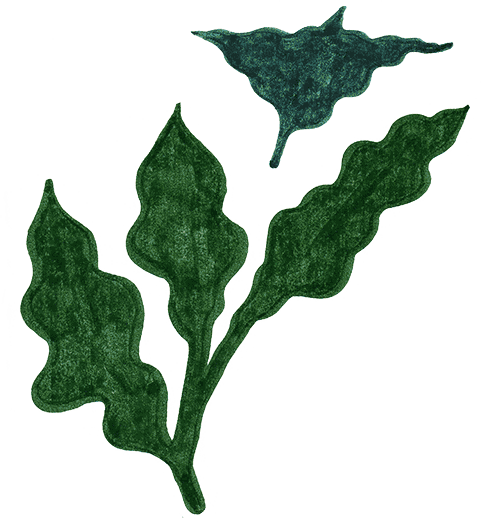
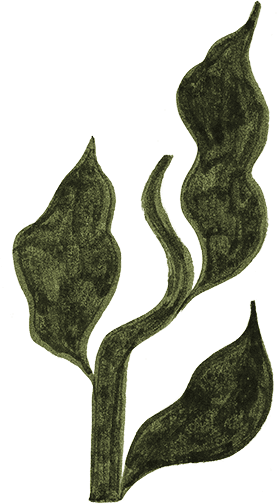
Index
- Language Justice
- Inspiration Behind the Design
- It takes a feminist village! Appreciation to feminist community globally
- How we learn from participatory Grantmaking practice
- How has FRIDA adapted the recommendation from 2015 report
- Sustainability of FRIDA’s Grantmaking Model
- What are we exploring in this report?
- The key questions we have been addressing
- Key learnings
- What you will find in this report
- Participatory Research Team
This report emerged as part of a three-year long documenting process of FRIDA's participatory grantmaking model. It gathers our learnings in a comprehensive resource that can act as a compass for the next phase of this grantmaking model’s journey. The time that it asked from us is exactly the time needed to process important conversations and all learnings and experiences. Having conversations with the young feminist community about participation in physically divisive times has brought new meanings to our practice. It has reminded us that our lives are interconnected and that different realities coexist not that far away from one another. It has expanded our perception of what we already know and brought to our awareness where we still need to grow. This perspective has created new life-enhancing opportunities to radically transform how we share movement and community space and the planet with each other. At the same time, it has reminded us that the power of feminist movements is rooted in authentic connections that can transgress borders and feel potent and tangible even in virtual spaces. As we are coming back to the community physically and virtually, these spaces for participation as feminist movements become even more intentional and sacred. The art of connecting to birth ideas and strategies into action is the most valuable resource of feminist movements. Therefore, a feminist funding mechanism needs to also have the same intention to cultivate critical connections between feminist organizers and resource the feminist movements at the source of their power.
As we reflected on our participatory grantmaking model, we also needed to reflect on FRIDA's role and responsibility when we create and facilitate space for participation and connection when there are both movement synergies and misalignment. We needed to name truths about the interlocking systems of oppression that build inequity and dynamics of power into our movement webs and expand distances between us. We learned from feminist movement caring practices, where we needed to reflect on the complexities of this model to truly embody its values.
We entered this research process with full openness to the notion that the grantmaking model that we have been developing for many years and held close to our hearts might require a deep transformation. As part of our ongoing learning process, we wanted to uplift and solidify what has brought joy in this process, as well as to change and compost anything that needs to be left behind. The knowledge that we are sharing in this report is tentative and ever-evolving because our realities might shift and ask for change again in the future. However, there are feminist principles and values that will always guide FRIDA's grantmaking model and help us to facilitate a transparent, equitable and diverse young feminist movement-driven participatory process that brings organizers closer to each other.
This report attempts to capture all the pieces of FRIDA's participatory grantmaking process and the vastness of young feminist knowledge and experience. It goes beyond a participatory funding toolkit and instead dives deep into self-reflection about the politics, principles, and values that are built into this participatory grantmaking practice. As part of our accountability to the young feminist movements, we are sharing in more detail about the mechanism behind this model, its benefits as well as challenges and limitations.
All people involved in creation of this report are feminist activists from the Global South and East. We hope to not only shift the power dynamics surrounding funding decisions, but also to decentralize narratives about who holds knowledge about and solutions for transformative community participatory practices. This report is dedicated to all young feminist collectives that have ever applied to FRIDA, supported their peers with their time and presence and trusted us to facilitate this process. These learnings will guide FRIDA's feminist participatory grantmaking practice to resource young feminist organizing, wellbeing and connections, and we will continue to report to the young feminist movements about how we implement them.
Language justice
We acknowledge that even though FRIDA’s grantmaking process happens in multiple languages, the language we use to communicate our work to the world is English. This language is not only overrepresented in our communication, but it can also introduce concepts that shape our imagination and how we envision our organizing, impact and transformative change that do not necessarily speak to the realities of our community across different contexts. The domination of one language can also impose culture-specific concepts that might not accurately describe movements’ organizing experience. This can create immense power dynamics that prioritize one knowledge source over others, as the language used in funding processes has the power to set agendas and direct our strategies and work. This report also contains concepts that allow us to communicate some ideas more quickly with the philanthropic community, but those same concepts don’t necessarily translate to Global South and East socio-political contexts. Feminist organizers are continuously asked to translate their realities to the language used within philanthropic frameworks, which is sometimes too narrow to fit their vision. This report is written by non-native English speakers and we understand the challenge of language accessibility and representation. For this reason, we kept some concepts descriptive in the report, and we will build an online glossary on FRIDA’s web page that will also expand overtime. This report will be translated to other languages that FRIDA operates in and it would be adapted accordingly.
Inspiration behind the design
For the design of this report, we have drawn inspiration from fungi and mycorrhizal networks, which all life on the planet is connected to and depends on. These webs interact with and build complex relationships with other plants, and they can transport information across their wide network. These relationships are intimate and also complex, and some exchanges feel more generative than others–some might even feel competitive or interdependent. There is so much that we can learn from these networks, including how they interconnect and exchange and sustain themselves. Separate fungal networks can fuse with each other, even with their many differences, and create powerful alliances by merging, connecting and building relationships. They survive together where they can’t on their own. This inspiration has been brought to life in analogue artwork and drawings by Marina Milanovic and Diana K. Cury.
It takes a feminist village!
Appreciation to feminist community globally
This report includes conversations, stories, memories, knowledge, and experiences from an expansive community of feminist activists who have been part of creating FRIDA over the years. FRIDA would not exist today without the intentional participation of feminist activists across the world who gifted their time, knowledge, and love to co-create this space. We hold deep gratitude for every feminist activist that has been part of the FRIDA Global Advisory and Grantee Community, and who continuously show up to FRIDA’s participatory process believing in their impact. We are also grateful to the staff members who get to support this process every year and bring their young feminist expertise into it. We are grateful to all young feminist collectives who have been part of FRIDA’s grantmaking process, and who shared their feedback and dreams for FRIDA’s future. Also, big appreciation to our teachers, those that came before us and those that we continue to learn with within the network of feminist funds globally that have shared feminist learnings and strategy spaces with us.
How we learn from participatory
Grantmaking practice
A participatory grantmaking process that involves young feminist organizers in staff, advisory, and grantee community as well as young feminist collectives that apply allows us to learn together with young feminist movements and co-create knowledge, expertise, and solutions together. We get to reflect and learn during each stage of this process and this knowledge shapes and nourishes our programmatic work, how we plan, distribute and mobilize resources and how we communicate our vision, commitments, and learnings with the world.
FRIDA participatory grantmaking process creates a space for learning, exchange, and feminist movement connection and carries these values in each stage of the process. In our most recent report on FRIDA’s participatory grantmaking approach, Letting The Movements Decide (2015) we have gathered some insight on what was working and what needed to change in the participatory grantmaking model for our open call for applications. From 2015 onward, FRIDA’s participatory grantmaking process has been modified based on the feedback gathered from the participants in that report, together with the data from our internal evaluation in each cycle. Today we are reflecting on what we have achieved so far and what is the future of this model.
How has FRIDA adopted the recommendation
from previous report
Diversity and outreach:
We have co-created regional and thematic funding strategies that guide us in facilitating intersectional participatory funding approach in each of the regions where FRIDA funds. These tailored strategies help us understand what conditions we need to set up to make FRIDA's application process more accessable. We were able to simplify and improve our grantmaking process, identify gaps and be intentional in our communication and outreach process. This has resulted in much of underfunded radical young feminist organizing receiving support from FRIDA and different communities recognizing FRIDA as a funder that can support their work. In the future, we hope to do more on-ground outreach and further improve the accessibility of the model.
Technology and access:
One of the biggest changes to our systems since 2015 is that we re-imagined how to bring this participatory grantmaking model to life on an online platform. We have moved away from the unsustainable tools like Excel sheets and designed a comprehensive system that supports this grantmaking process in every stage. For now, the model is hosted via the Smart Simple platform and is set up with multiple portals for different communities participating and facilitates communication across the platform. It was key for FRIDA grantmaking staff to be involved in the design, and we put a lot of thought in every stage of our grantmaking process. We ensured that platforms are available in all languages that we work in and that groups could keep track of their application process with clarity. The platform connects all stages of the process from application to the Peer Review Panel process, to applicant voting process, to cross communication and due diligence as well as grant payments. Before we made this change, the process took up a lot of our time because we weren't using systems and structure set up for such a complex participatory process. We have since learned that the tools that we use to host a participatory process are critical for saving us the time which we can now direct to provide more care and intention to the process.
Data systems and analysis:
FRIDA has published many reports on young feminist organizing and trust-based funding, and we have created our strategic plan together with the community of young feminist organizers. As we are understanding our role in philanthropic advocacy, we have improved our systems of data analysis with the a new MEL framework, capacity strengthening and grantmaking evaluation process. We have created participatory funding strategies, where data from grantmaking cycles and information that we receive flows across our work and informs the way we support young feminist organizing. The data that we receive supports us in the long-term to make movement informed decisions, when there are no capacities for direct participation.
Voting system
Since 2015 we have made immense changes to the voting process and how the voting groups are organized in the participatory grantmaking process. We have created a comprehensive voting system that can navigate complexities while still supporting meaningful connections and the funding of diverse young feminist organizing. There is also another layer of review of the final decisions, which is a way to support groups that might face disadvantage in the voting process. We reflect on the voting mechanism in this report as well, and we intend to make changes to this system in the upcoming years.
Sustainability of FRIDA's
Grantmaking model
From its inception until 2020 FRIDA’s participatory grantmaking process has been managed, facilitated and further designed but one staff member. This role involved designing and improving the grantmaking process, setting up the systems and technology to hold it and manage each stage of this process. This involved also facilitation of participation of Advisory Committee, young feminist collectives applicants and grantee partners and participation of other FRIDA staff. We recognize that it was an unsustainable way of managing this process and incompatible with the values and principles that we hold behind it. FRIDA’s budget has affected how we could grow our systems internally while we respond to the commitments towards young feminist movements. Today there are multiple staff members managing this process, however we still are rethinking about sustainability of this approach so that this knowledge is decentralized and doesn’t depend on one person holding all the history and pieces of it.
What are we exploring in
this report?
Even after a decade of participatory grantmaking practice, we engage with curiosity in every grantmaking cycle and with full openness to the notion what we have been planting and nurturing for the past years might no longer be serving the young feminist movements. We have asked the young feminist community of applicants, grantee partners and FRIDA advisers what are the valuable segments of FRIDA model that bring joy and excitement and what they found challenging in the process and should be assessed or changed in the future. This is a report back to young feminist communities about what we have learned in our grantmaking from 2015-2021, and how FRIDA will move forward in respect to this collective knowledge.
We have collected data from application forms, feedback forms, voting forms, feedback on the voting and about FRIDA's process, email communications and Q&A, outreach processes, regional strategies, grantee data and other FRIDA's research and reports. All the data that we have received has been read with a feminist intersectional lens and with an understanding of how interlocking systems of oppression influence our data. We will be sharing findings beyond numbers and with more analyses that might not show in numbers. We have learned that numbers reveal the success of this participatory model, but that the barriers that just a couple of groups could experience around access, bias, capacity can fundamentally challenge this model. We wanted to go deeper, questioning what participation means to the communities that we exist to support and what the impact of this model could be on those that participate.
The key questions we
have been addressing
What is the impact of funding practices where communities decide what is important to be funded in their organizing context? What are the challenges and complexities of participation and connection, and how to address them?
In what ways can a participatory grantmaking provide a space for young feminist collectives to connect, practice solidarity and build movements? What FRIDA needs to change in its system and approach to make this process intersectional?
What are young feminist solutions to transforming power structures in philanthropy and distribution of resources? How do young feminists envision a feminist funding mechanism to look like? What tools are young feminists using to address and advocate for change in power structures? How are young feminists collaborating with other movementss and how do they involve communities in their work?
What has shifted in FRIDA's grantmaking model and grantmaking strategy during the years of facilitating a participatory grantmaking model? How has the involvement of the communities we fund reshaped the FRIDA model?
What are the technical, political and ethical aspects of FRIDA's participatory model and their impact? What are the challenges of implementing a participatory model of grantmaking? What structure FRIDA needs to have in place to practice its feminist values while facilitating a participatory process?
Key learnings
What we have learned confirms that FRIDA’s grantmaking model aligns our decision-making with feminist values and principles and fulfills its main purpose: building movement connection, power and mutual accountability:
- Feminist participatory decision-making models are already a feminist movement practice and how they envision a feminist funder
- Participatory grantmaking deepens our understanding about the diversity of perspectives and realities and how to most effectively support young feminist organizers across political, social and economic contexts.
- Movement building in an online space is possible. Facilitating meaningful connections and aligned visions allow us to uplift and be present for each other across geographies.
- After connecting with the impact of their participation, the groups are more willing to participate in other FRIDA's internal participatory process and to apply participatory approaches in their own work.
- Recognizing a common vision that movements are interconnected, and that sharing community spaces and being in right relationships matters, challenges the competitive mindset.
- Meaningful and accessible participation allows for young feminist groups to get to learn and connect with each other and to develop awareness of belonging to a larger movement. This experience has a potential to expand our empathy, compassion, and solidarity towards peer feminist organizers.
- Connection and misalignment can happen simultaneously in a movement led participatory process. This requires a flexible, caring structure to act as a compass that points to the values we seek to practice throughout this process.
- Transparency and clarity are key to building meaning into participatory process facilitated by funded and are key principles that shape a feminist participatory practice.
- It is important to maintain an intersectional lens and to put in concrete efforts to increase the accessibility of our process, including through languages, outreach, community involvement, and the accessibility of our application form. This practices can diversify the outcomes of the process and make the participation meaningful for those involved.
To be truly participatory, we need to continuously reflect on the accessibility of our processes and build conditions for equitable participation.
Movement solutions about participatory processes are different across contexts, and the movements processes are serving should be part of their design.
Establishing sustainable systems and comprehensive movement-informed strategies that hold all pieces of a participatory process together help us move at a quicker pace.
Young feminist organizers want to be part of decisions about funding priorities and strategies, but there need to be conditions in place so that their participation is connected with the process as much as with the outcomes.
What you will find in this report
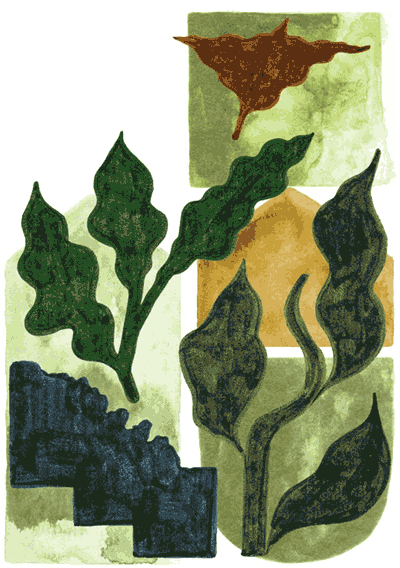
RECOMMITTING TO A FEMINIST PARTICIPATORY GRANTMAKING PRACTICE
The key findings have helped us articulate the grounding principles of our participatory practice as a feminist fund. These values have always existed, but they are now solidified as part of the structure and principles under which this model operates. In this section, we reflect on the structure that holds those values and allows them to express themselves and shape this process.
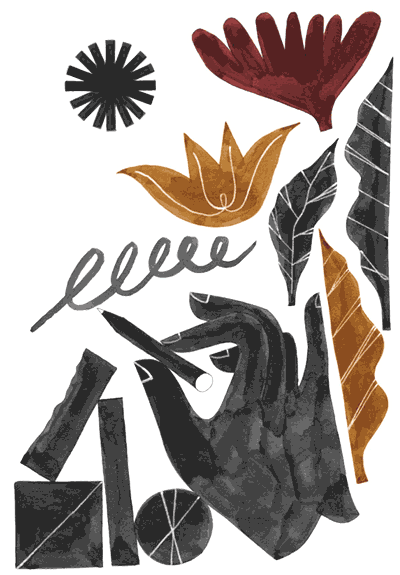
FRIDA'S PARTICIPATORY FUNDING MODEL : HOW DOES IT WORK?
FRIDA's participatory grantmaking is quite complex, and we wanted to ensure that each stage of the process is explained in detail. This is an important section for getting a comprehensive understanding of the model in order to connect with young feminist community feedback, as well as FRIDA's reflections, learnings and paths forward.
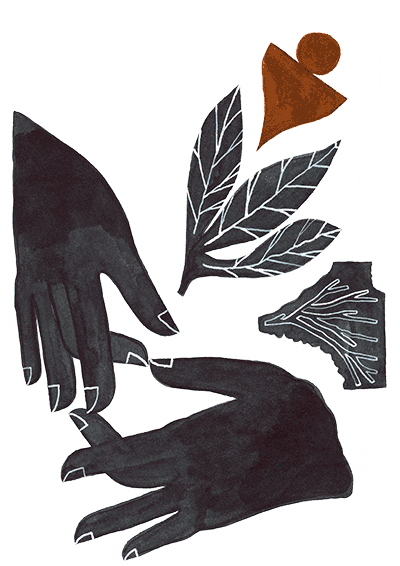
YOUNG FEMINIST COMMUNITY EVALUATION OF FRIDA'S PARTICIPATORY GRANTMAKING MODEL: FEEDBACK, LEARNINGS AND POSSIBILITIES
In this section, we share the main findings from the feminist participatory research that has been carried out by co-researchers–young feminist activists from FRIDA's advisory, grantee partners and staff, and external consultants. These findings have informed all other sections of this report.
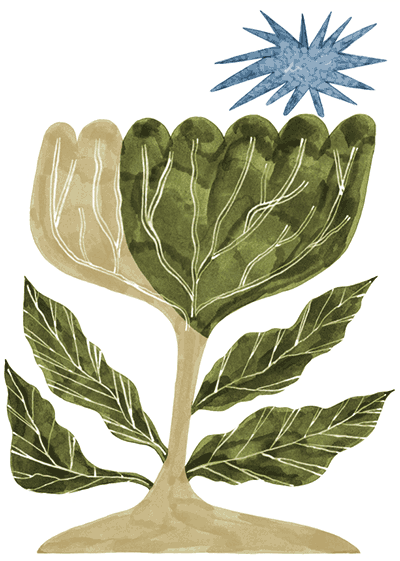
FRIDA REFLECTIONS ON YOUNG FEMINIST COMMUNITY FEEDBACK & WAYS FORWARD
In this section, FRIDA is sharing internal reflections in conversation with findings, questions and concerns that have emerged from the research. FRIDA will also clarify the rationale behind some decisions in the design of this model. These decisions are informed by the data we have received about the impacts of this process that are not always visible, as well as the challenges that guide our future dreams and visions for this model.
Participatory Research Team
RECOMMITTING TO FEMINIST PARTICIPATORY GRANTMAKING PRACTICE; FRIDA’SS FUNDING MODEL, LEARNINGS, AND REFLECTIONS: PROJECT COORDINATOR AND WRITER: Jovana Djordjevic
REVIEWERS: Mariam Gagoshashvili, Paige Andrew, Veronica Veloso
EDITOR: Kim Kaletsky
YOUNG FEMINIST COMMUNITY EVALUATION: FRIDA GRANTEE PARTNER CO-RESEARCHERS: Priyadharsini Palaniswamy, Jade P. Leung, Tatjana Nikolic , Deniz Nazarova, Aline Izaias Lucio, Dina Abdel-Nabi, Mona-Lisa Danieli Mungure
FRIDA ADVISORY CO-RESEARCHERS: Twasiima Tricia, Hazal Atay
RESEARCH TEAM COORDINATOR:Jessica Gonzalez Sampayo
FEMINIST PARTICIPATORY RESEARCH METHODOLOGY: Jovana Djordjevic, Kavita Devadas
DATA COLLECTION AND ANALYSES: Recrear International
WRITER: Gioel Gioacchino, Recrear International
DESIGN: Marina Milanovic (IG @milanovicmarina) and Diana K. Cury
APPRECIATION TO FRIDA CURRENT AND FORMER STAFF MEMBERS FOR THEIR INPUTS AND FEEDBACK: Veronica Veloso, Paige Andrew, Khensani Charllote Nhambongo, Maria Diaz Ezquerro, Mayra Zamaniego Lopez, Di Wang, Saadat Baigazieva, Mbali Khumalo, Senda Ben Jebara, Marta Music, Maryam al-Khawaja, Maria Eugenia Olmos, Leticia Vieira da Sillva, Boikanyo Modungwa
To learn more about the methodology and the finidngs from FRIDA’s participatory grantmaking model and system design, as well as values and principles behind the model, please reach out to: Jovana Djordjevic: jo.djordjevic@proton.me
To learn more about FRIDA’s current participatory grantmaking system and process, please reach out to: Veronica Veloso: veronica@youngfeministfund.org 1 Jovana joined FRIDA in 2013, and she was managing, developing and facilitating FRIDA’s participatory grantmaking process until 2020. This report is part of her knowledge documentation and transition process. Veronica is now leading FRIDA’s participatory grantmaking process with a growing grantmaking team that will be aligning FRIDA’s model with young feminist community feedback and recommendations.